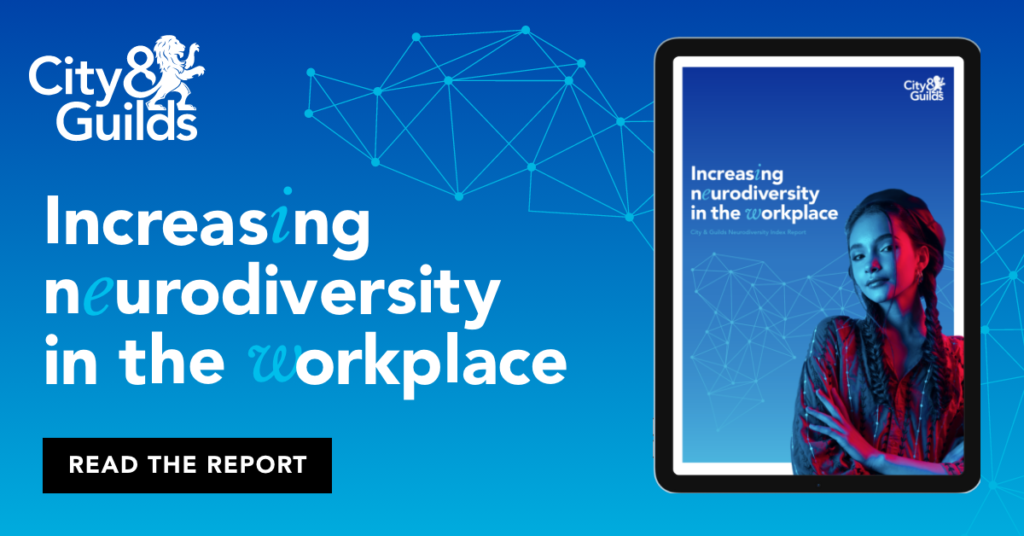Back in 2019 the City & Guilds Foundation was established to really amplify City & Guilds’ purpose and particularly focus on supporting individuals who face significant barriers in developing their skills.
Over the past 3 years we have supported a range of people including Prisoners, ex-offenders, care leavers, refugees and young people at risk of becoming NEET. What was becoming more and more obvious when we were talking to some of our charity partners in these spaces was the common theme around the increase of neurodivergent individuals and the lack of support that was available to them.
As we finally wake up to the moral case for creating a fairer and more equitable society there is also and always has been, a very strong business case attached to supporting more diverse and inclusive workplaces and communities.
McKinsey presents compelling statistics that show financial gains for companies with greater gender and ethnic diversity in their executive teams and clearly more diverse organisations will be able to understand and respond to a broader range of customers and communities.
The education and skills sector has a huge role to play in supporting people of all backgrounds to progress and this is our moment to look forwards and play our part in creating a world in which everyone is given the opportunities they need to succeed.
Everyone should be able to realise and fulfil their potential.

Last year we started talking to Do-IT Solutions, a global market leader in neurodiverse screening and assessment. And with them we have been trying to promote a shift away from a negative framing of neurodiversity which focuses on what people cannot do, towards an approach which is inclusive of all the ways of thinking and emphasises what people can do.
Back in the Autumn we put a callout to individuals and organisations to complete our survey, which would help us to create our Neurodiversity Index. Just under 1000 responses later, and it’s clear that neurodivergent employees are impacted by a lack of training and support in the workplace. 58% of neurodiverse employees have felt comfortable disclosing their condition and have received a good or OK response. And 40% of neurodivergent employees say they are impacted most days in the workplace by their condition.
We want this research to be a benchmark for organisations to use and to help them consider what actions they should take to create a more inclusive workplace for all.